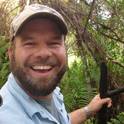| 2011 - Present | Assistant Professor, Nova Southeastern University ‐ Halmos College of Arts and Sciences - Department of Biological Sciences | |
|
|
||
Disciplines
Research Interests
| 2008 | Ph.D. Biology, University of New Brunswick, Saint John | |
|
|
||
| 2004 | Diploma in University Teaching, University of New Brunswick ‐ Centre for Enhanced Teaching and Learning | |
|
|
||
| 2001 | M.Sc. Natural Resource Sciences, McGill University | |
|
|
||
| 1997 | B.Sc. Biology, Specialization in Ecology, Concordia University, Montreal, Quebec, Canada | |
|
|
||
Contact Information
954-262-8041
Email:

